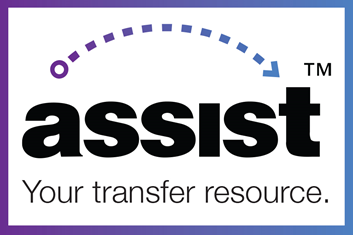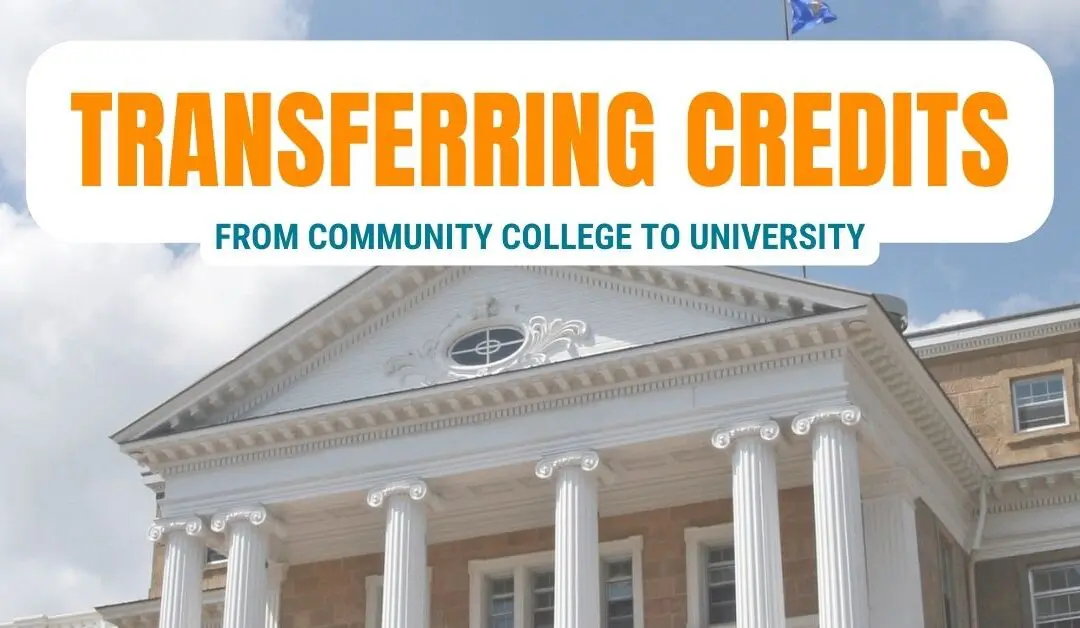Transferring to a university can be a great way to improve your education. So you’re considering transferring your credits from a community college to a university.
There are several reasons why this might be a good idea. Perhaps you want to get a head start on your degree, or maybe you’re not happy with the community college you’re attending.
Many students have difficulty transferring their community college credits to a university because they don’t know how to navigate the process.
This can lead to wasted time and money since students may have to retake classes they’ve already taken at the community college.
Trying to figure out how to transfer your credits from a community college to a university can be challenging. There are many things to keep in mind, and the process can seem confusing and overwhelming.
We understand how frustrating this can be, so we’ve included this article outlining the steps in successfully transferring your credits. Keep reading for more information.
What is a credit transfer, and why would you want to do it
A credit transfer is a process of transferring credits earned at one institution to another institution. This can be done from a community college to a university or from one university to another.
There are several reasons why someone might want to do a credit transfer. Perhaps they want to finish their degree sooner, or they’re not happy with the school they’re attending.
No matter your reason for wanting to do a credit transfer, it’s crucial to understand how the process works. This can help ensure that your credits are transferred successfully and without problems.
Keep reading for more information on transferring your credits from a community college to a university.
Transfer students can take all their earned college credits and apply to four-year institutions that offer the bachelor’s degree program they are interested in.
The two-year college to four-year school route is efficient because students decide when they are ready to enroll in a bachelor’s degree program. Students find the correct programs they will likely succeed in or be interested in.
How do you know if your community college credits will transfer to a university?
A common concern amongst community college students is determining whether or not the classes they are taking will count for transfer credit. Unfortunately, there is no easy answer to this question. Each university has different policies regarding the transfer of credits, which can change at any time.
The best way to determine if your credits will transfer is to contact the university you’re interested in attending and ask about their credit transfer policies. The academic advisor at the four-year college should be able to provide you with information on the specific requirements of the major or department you are interested in.
Most community colleges have an articulation agreement with local universities. An articulation agreement is a document that outlines how credits will transfer between the two institutions.
These agreements are made between individual colleges, so it’s essential to check with your community college and see if they have an articulation agreement with the university you’re interested in attending.
Transferring Credits with ASSIST
California community college students can look at Assist.org for articulation agreements between the California Community Colleges and the University of California (UC) and California State University (CSU) system.

ASSIST is the most important resource for California community college students because it lists the college courses one needs to take to transfer.
Understanding what courses will transfer to your institution of choice is essential because it will save you from taking unnecessary classes. Classes deemed unnecessary are those that do not help you in transferring due to the transfer institution not accepting or recognizing that course for credit that can be transferable.
In essence, when you take courses that do not transfer, you are wasting your time unless it is credit that can count towards an associate degree at your community college.
More often than not, general education courses will transfer to local universities. Still, the prerequisites for some major preparation courses may not transfer.
Save time and money by clearly understanding which classes will transfer and what college courses you need to take for your intended major.
Which universities accept credits from community colleges
While most universities accept credits from community colleges, there are some exceptions.
For example, Ivy League schools and other highly competitive colleges are less likely to take credits from community colleges.
Suppose you’re interested in attending a university that doesn’t typically accept credits from community colleges.
In that case, your best bet is to speak with an admissions counselor. They may be able to make an exception in your case or provide guidance.
Institutions outside of California are not likely to offer credit for California community college classes due to the lack of an established articulation agreement of credit evaluation.
Steps to take to transfer your credits successfully
Suppose you plan to transfer your credits from a community college to a university. In that case, there are a few things you need to do to make the process go as smoothly as possible.
Here are the steps you need to take:
- Check with your community college and the university you’re interested in attending to see if they have an articulation agreement.
- Determine which courses will transfer by speaking with an admissions counselor or checking ASSIST.org.
- Make sure you take courses that will count towards your degree at the community college.
- Complete all of your community college coursework on time. Arrive on campus to see your classroom(s)
- Request official transcripts from your community college and send them to the university you’re transferring to. You must request an official transcript from every accredited college you took higher-level classes.
- Apply for admission to the university and indicate that you are transferring credits from a community college.
- Receive approval from the university for your credits to be transferred. Students must acquire the transfer institution’s authorization to complete the application process.
What happens if there are any problems with the transfer process
Transferring from community college to university is not easy. Still, it can be if you are prepared and flexible with your approach to education. If you struggle to complete program requirements or get good grades, consider enrolling for another semester.
The most critical consideration in your transfer process is the need to succeed in your college career. Your college education has to take priority in your life. Suppose you cannot enroll full-time and transfer from city college to university in two years. In that case, it is perfectly acceptable to continue for another year.
With the transfer process comes the prevalence of problems. If you are unsure how the process works for you and the four-year school you are interested in, then speak with a college counselor or academic advisor at your current school to go over the steps you need to take.
High School Students
Moreover, if you are a high school student who knows they will go to community college and then transfer to a university, you can prevent common transfer problems by engaging with counselors and college classes early.
Consider the schools you want to attend and evaluate the admission to the school. Your first two years at community college can be finished sooner if students pursue a dual enrollment course.
Dual Enrollment
Today, high school students have new opportunities to obtain college credit through dual enrollment programs, allowing them to take college classes on their high school campus. These classes are offered by the local community college and, in conjunction with the high school, grant college course credit to students about to graduate.
Your transition from CC to University will be easier if you are engaged in your education and determined to save money while transferring to a four-year school. Transfer students’ paths are made more accessible when they find the articulation agreements between the CC and the four-year school they would like to attend.
You will often have the edge over other students who are not taking advantage of the dual enrollment programs offered. Remember that taking advantage of concurrent enrollment makes your path to transfer to your dream school significantly more manageable and cost-effective.
The benefits of transferring your credits from a community college to a university
There’s a reason they call it the transfer process. It can feel like you’re carrying all your credits with you on your back, hoping that they’ll sign off on everything and let you into the university of your choice. But don’t worry, it’s not as bad as it seems. In fact, there are plenty of benefits to transferring your credits from a community college to a university.
For one, by transferring credits from a community college to a university, students can receive scholarships and other financial aid to make the transition easier.
In addition, transferring credits can help students to complete their degrees in a shorter time frame. And with the rising cost of tuition, that’s good news for everyone.
Moreover, you’ll get the opportunity to learn from some of the best professors in the country. Some are renowned in their fields and teach primarily at the local four-year university.
So if you’re feeling weighed down by the transfer process, just remember that it’s worth it in the end. You’ll be glad you made a move.
Conclusion
In conclusion, transferring credits from a community college to a university has many benefits. A credit transfer is a process of having credits earned at one institution counted towards a degree or qualification at another institution.
This can be an attractive option for students who have completed coursework at a community college and would like to continue their studies at a university.
To ensure that your credits will be accepted, it is vital to research the credit transfer policies of potential universities and follow their specific steps for transferring credits. If any problems should arise during the process, there are avenues available for recourse.
The benefits of transferring credits from a community college to a university can include saving time and money, as well as increased opportunities for scholarships and networking. Transferring credits can be daunting, but it is ultimately worth it.
FAQ
What is a reverse transfer?
A reverse transfer is transferring credits from a four-year university to a community college. This is often done to obtain an Associate’s degree from the community college before completing a bachelor’s degree at the university.
The reverse transfer process is gaining steam and recognition amongst state legislatures and systems of higher education. Reverse transfer students are frequently eligible to receive an associate’s degree. Still, they are unaware that they qualify after transferring and completing a degree at a four-year university.
How do I know if my credits will be accepted?
The best way to determine if your credits will be accepted is to research the credit transfer policies of potential universities and follow their specific steps for transferring credits.
Are there any avenues for recourse if my credits are not accepted?
Suppose you encounter any problems during the credit transfer process. In that case, you can always contact the Admissions Office or Registrar’s Office of the university you are attempting to transfer to.
What are some benefits of transferring credits from a community college to a university?
Some benefits of transferring credits from a community college to a university can include saving time and money and increased opportunities for scholarships and networking.
Is there anything I should remember while going through the credit transfer process?
One thing to keep in mind is that it is vital to research the credit transfer policies of potential universities and follow their specific steps for transferring credits. Additionally, there are always avenues for recourse if you encounter any problems during the process.
Can I transfer community college credits from out-of-state to a California university?
In some situations, YES. For example, Washtenaw Community College, located in Ann Arbor, Michigan, has transfer agreements with various California institutions.
Some WSS students have successfully submitted WCC transfer credits to schools like UC Berkeley and UC Davis. Remember to check that these articulation agreements have been re-established before considering them up-to-date and current.





